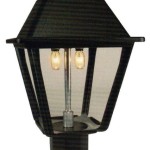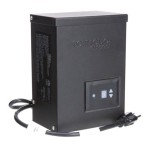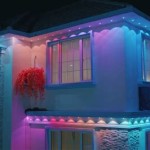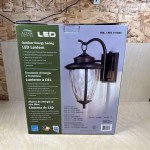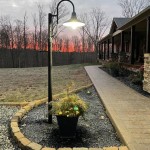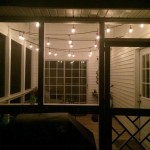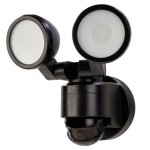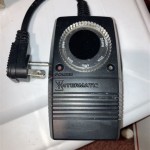Do I Need Special Bulbs For Outdoor Lights?
Outdoor lighting serves a multitude of purposes, from enhancing security and safety to creating ambiance and accentuating landscaping. While aesthetics undoubtedly play a role, choosing the right bulbs is crucial for optimal performance, longevity, and energy efficiency. This article delves into the unique requirements of outdoor lighting and explores the necessity of utilizing specialized bulbs.
Weather Resistance: A Primary Consideration
Outdoor lighting fixtures are exposed to the elements, including rain, snow, extreme temperatures, and humidity. Traditional incandescent bulbs, while readily available, are susceptible to moisture and temperature fluctuations, leading to premature failure. To withstand these harsh conditions, outdoor lighting demands bulbs with enhanced weather resistance.
Specifically, look for bulbs with an IP rating (Ingress Protection Rating). This rating indicates the level of protection against dust and water intrusion. For outdoor use, an IP65 rating or higher is recommended. This ensures that the bulb is sealed against dust and protected from water jets, ensuring reliable operation in various weather conditions.
Energy Efficiency and Performance
Outdoor lighting often remains switched on for extended periods, especially during the evening hours. Therefore, energy efficiency becomes a significant factor in selecting suitable bulbs. While traditional incandescents may be inexpensive initially, their high energy consumption can result in substantial electricity bills.
LED bulbs offer a superior solution with their high energy efficiency and long lifespan. They consume significantly less energy than traditional bulbs while producing comparable or even brighter light output. Moreover, LED bulbs have a much longer lifespan, often lasting for several years. This reduces the need for frequent replacements, saving both time and money.
Light Color and Application
The choice of light color, expressed in Kelvin (K), is crucial for different applications. Warm white lights (2700K-3000K) create a cozy and inviting ambiance and are ideal for patios, decks, and pathways. Cool white lights (3500K-4500K) provide a brighter, more functional illumination and are well-suited for security lighting and driveway illumination.
For specific tasks like reading or working outdoors, consider using daylight bulbs (5000K-6500K) which mimic natural sunlight. These offer a clear, bright light ideal for detailed activities. However, daylight bulbs are generally less suited for creating a relaxing atmosphere.
Beyond Standard Options: Specialty Bulbs
For unique lighting needs, various specialty bulbs are available. Motion-activated bulbs offer an added layer of security by illuminating areas only when movement is detected. Solar-powered bulbs provide sustainable lighting solutions by harnessing energy from the sun, reducing dependence on electricity.
Furthermore, consider LED floodlights for illuminating large areas, such as driveways or gardens. These powerful lights offer exceptional brightness and energy efficiency. Finally, for accent lighting, consider low-voltage LED landscape lights that offer a subtle and elegant illumination of walkways or flower beds.

Landscape Lighting Installation Companies Types Of Light Bulbs For Outdoor Orlando Florida Palmer Electric Company

How To Choose The Best Outdoor String Lights

Best Outdoor Lighting Bulbs Of 2024

Indoor And Outdoor Light Bulbs Pacific Lamp Supply Company

How Many Lumens Do You Need For Outdoor Lighting

Can I Use This Bulb Outside 1000bulbs Blog

Are Led Bulbs Good For Outdoor Use Blog Lucas

Outdoor G40 String Lights Festive Patio And Garden Lighting Chronos

Feit Electric 120 Watt Equivalent Par38 Outdoor Dimmable Cec Title 24 90 Cri E26 Flood Led Light Bulb Bright White 3000k Par38dm 1400 930ca The Home Depot

Indoor Vs Outdoor Lighting Are They Interchangeable Kirby Electric
Related Posts
